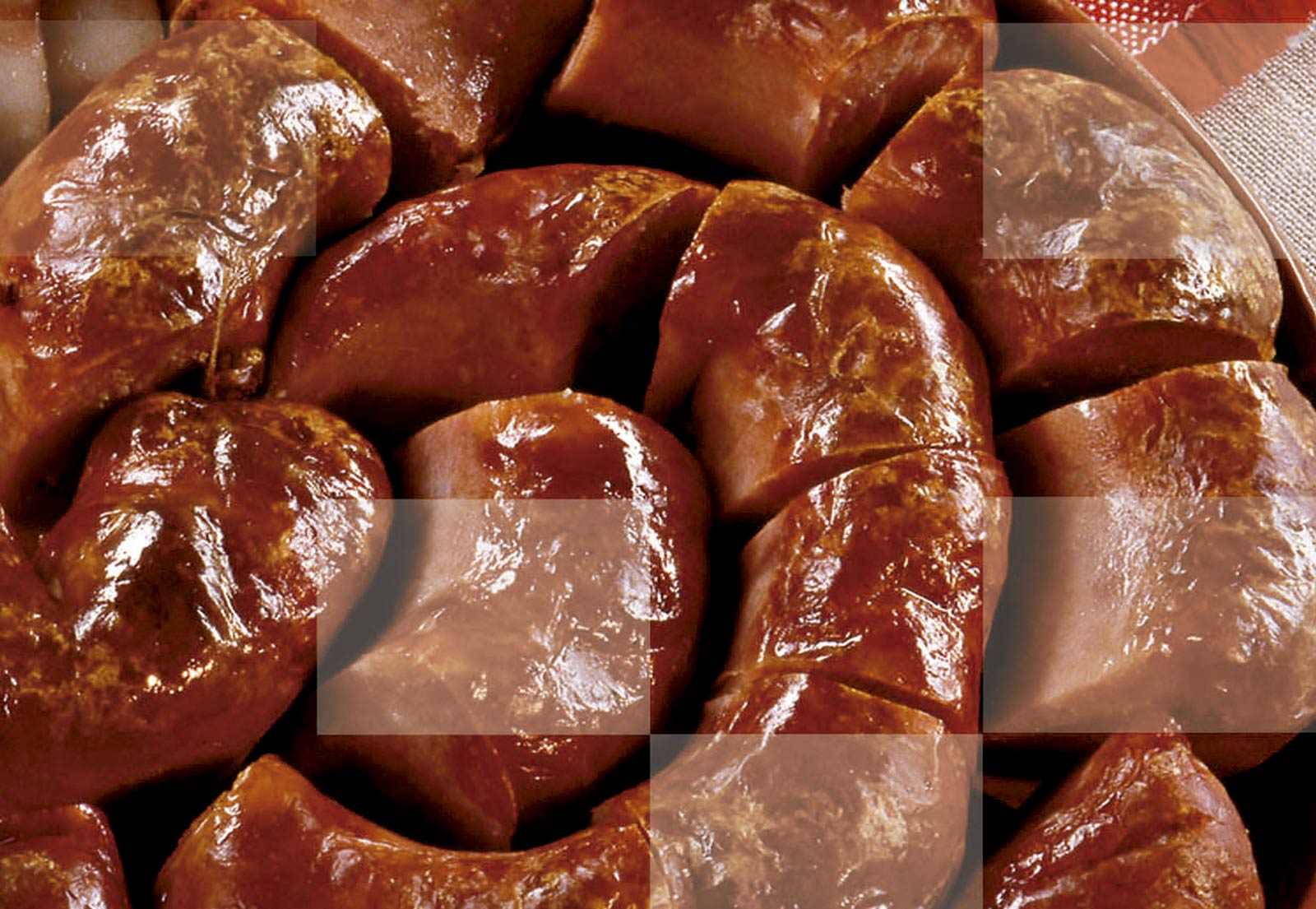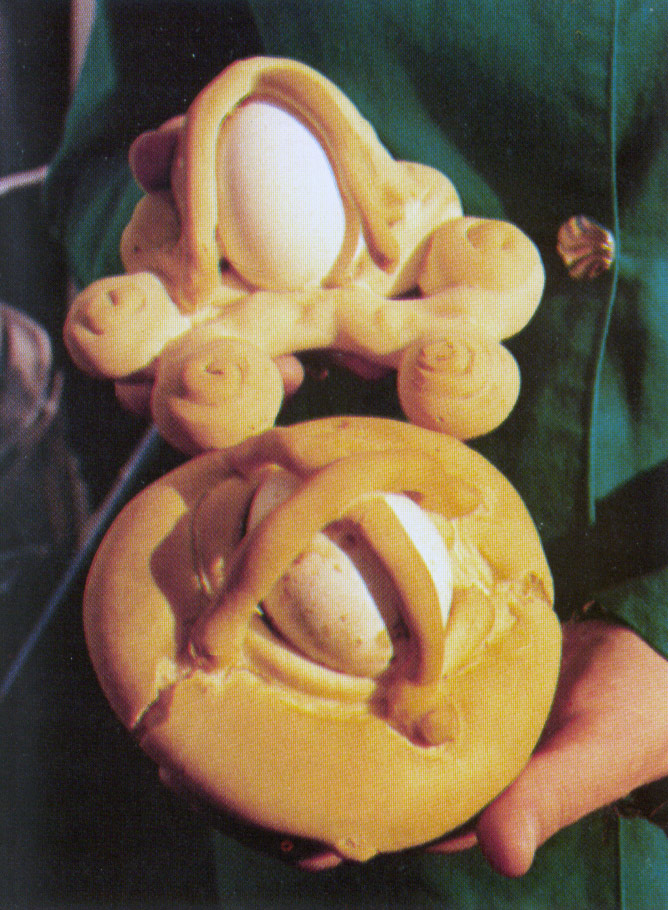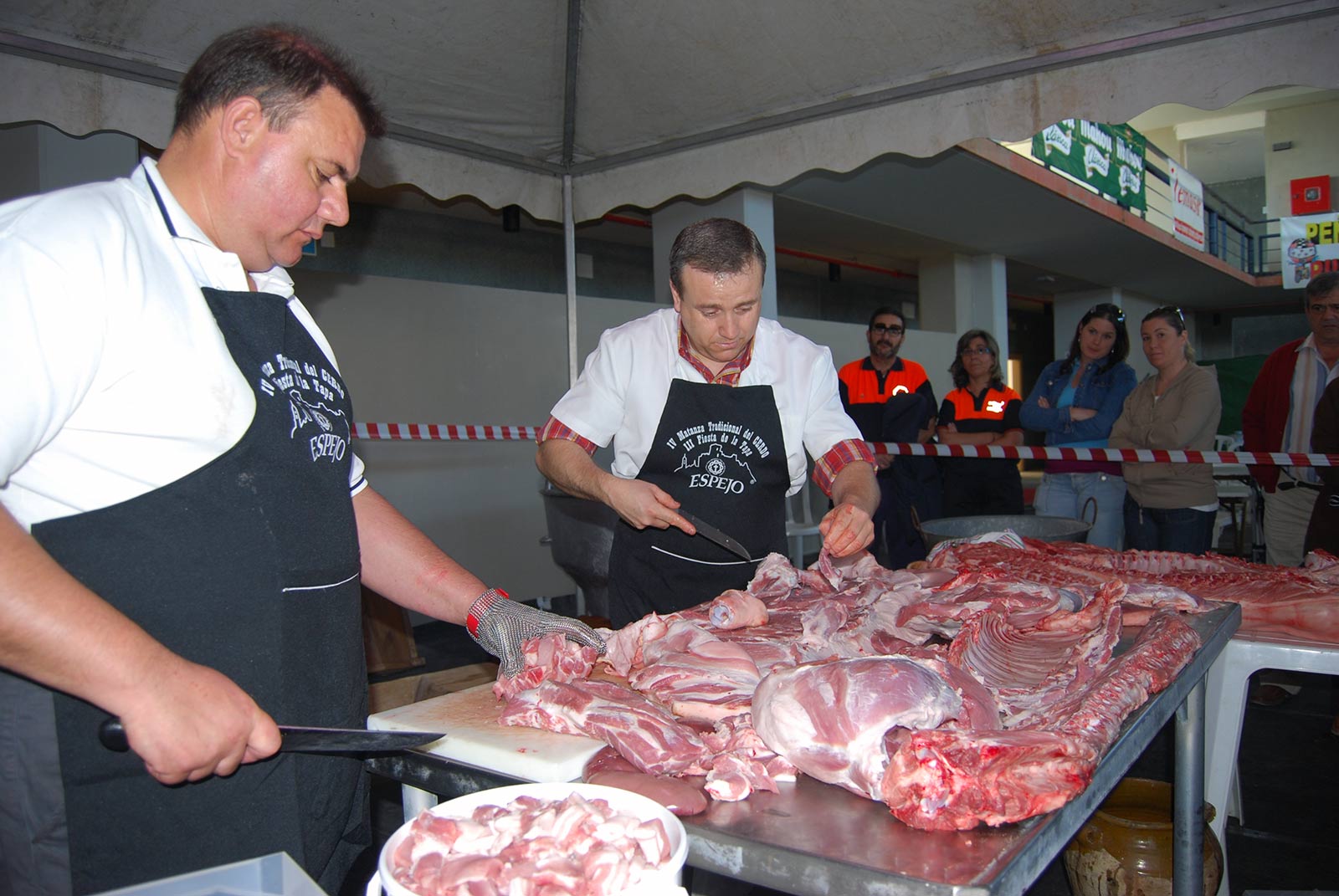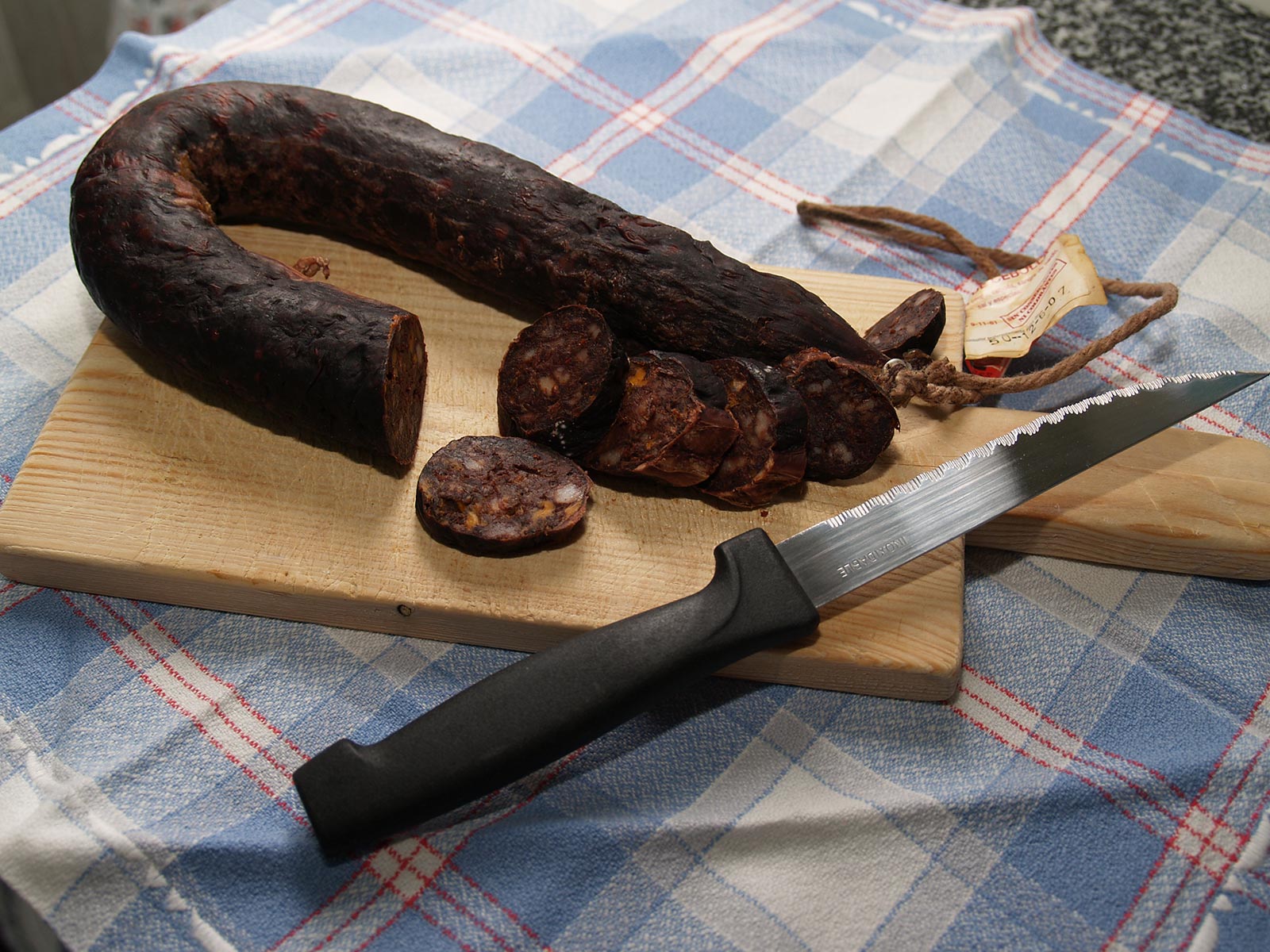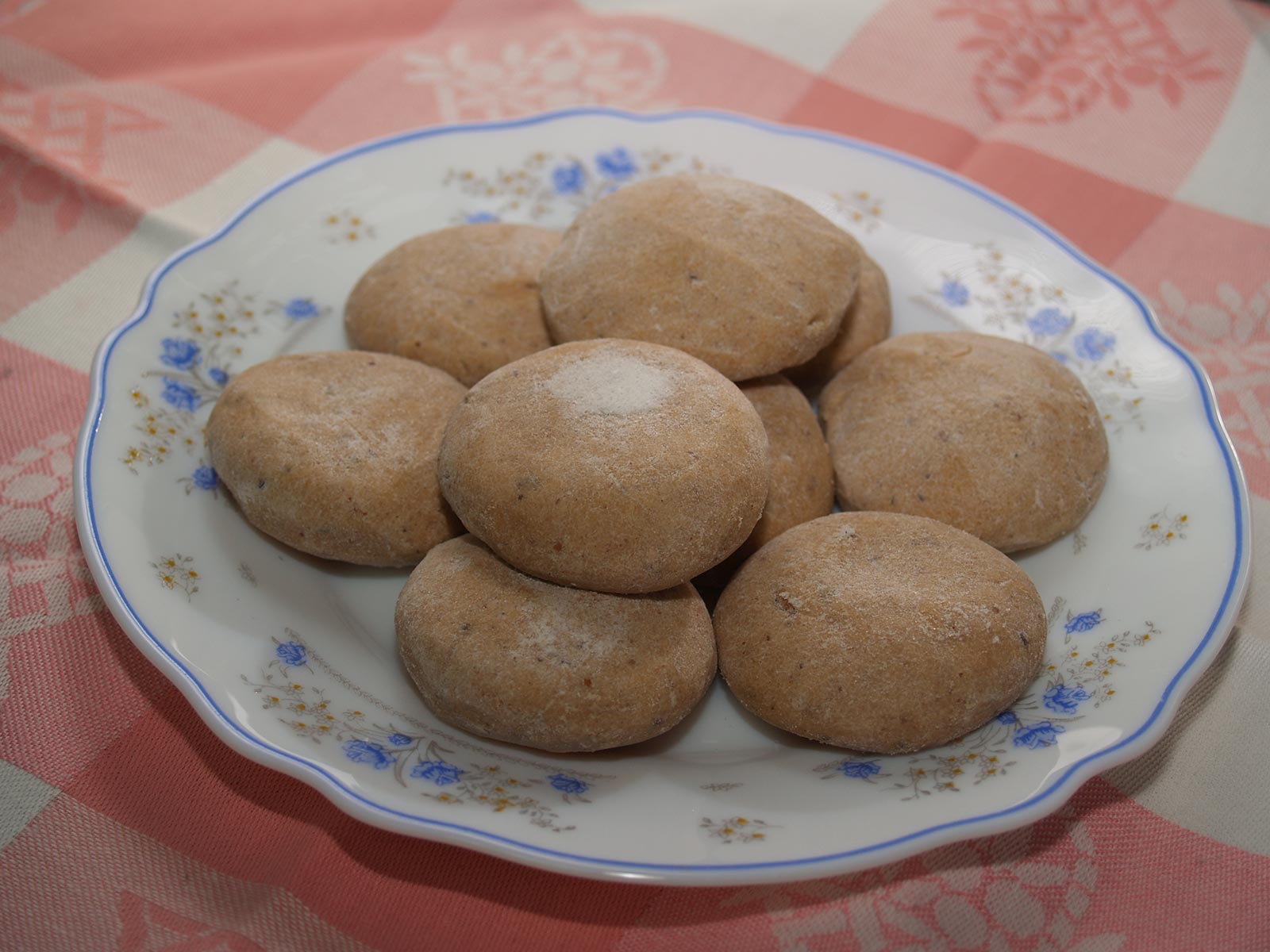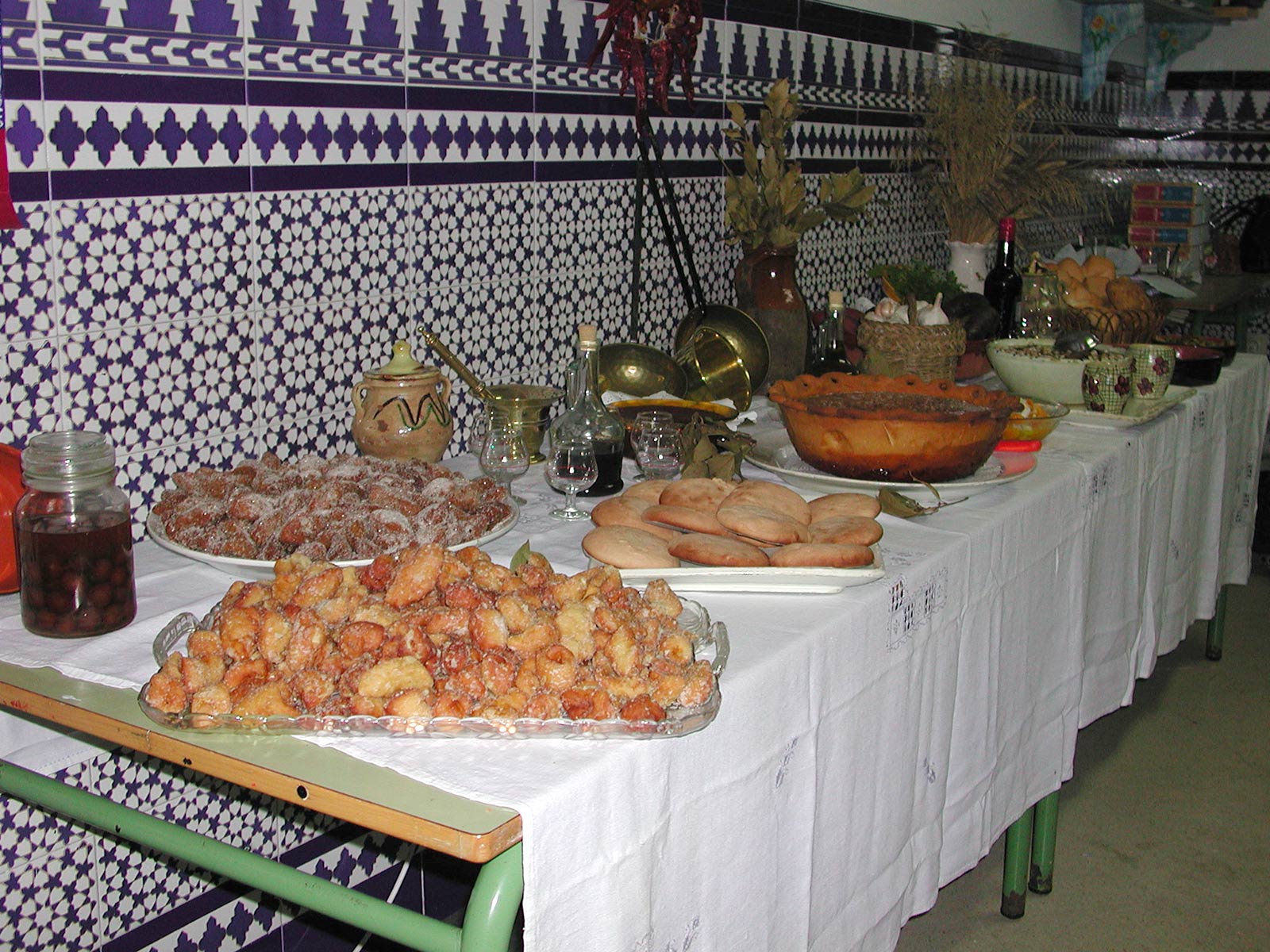La gastronomía espejeña es rica y variada. Una gastronomía que comparte con las poblaciones vecinas la esencia del sabor de los productos de una tierra bañada por las aguas del Guadajoz. A ella, el espejeño y espejeña han sabido impregnar de cierta originalidad confiriendo a sus platos un sabor único capaz de conquistar paladares: «Espejo no tiene que copiar, solo tiene que mirarse a sí mismo».
La morcilla de cebolla y el chorizo, tan afamados como exquisitos, constituyen sus más renombradas especialidades. Su popularidad ha rebasado con creces los límites comarcales y provinciales, siendo conocidos estos productos incluso en el mercado nacional. La industria oleícola, con la elaboración de un aceite virgen extra de primera calidad, es otro pro- ducto donde, además, basa su economía este pueblo cordobés. Los ingredientes de su cocina, –especialmente la almendra– se utilizan con verdadera obsesión. La confitería, por su parte, es otra especialidad en la que Espejo ha destacado tradicionalmente, siendo el «cuajao» uno de los dulces más típicos de este pueblo. En la gastronomía árabe–judía tuvo su fuente de inspiración.
¿Qué hacer para saciar el apetito, tras una larga y densa jornada de arte, de historia, de cultura…?
La mejor opción, detenerse en cual- quiera de los bares y restaurantes en los aledaños de la Nacional Badajoz– Granada, a su paso por Espejo, o en los del interior de la población, y saborear los riquísimos embutidos que la tradición matancera de Espejo ha preservado. De entre ellos, como se ha señalado, destacan la morcilla de cebolla y el chorizo, según la fórmula tradicional de los matanceros espejeños, cuyos nombres forman parte inalienable de la historia gastronómica de este rincón cordobés.
Sus descendientes –Olmo, Castro, Méndez, Yépez, Jurado, Jiménez– recogieron la antorcha para seguir ofreciendo sus productos a los paladares más exigentes. Productos únicos, que, junto con el rico patrimonio cultural que –como se ha podido comprobar– ofrece Espejo, hacen de esta villa punto de obligada referencia en el turismo rural.
Otro pilar fundamental de la gastronomía espejeña –y el sostén económico de esta población– radica en la producción del aceite de oliva virgen extra elaborado en sus tres cooperativas oleícolas: Cooperativa Olivarera «San Isidro», Sociedad Agraria de Transformación n.º 6579 y Cooperativa «Virgen de la Oliva». A ellas puede acercarse el visitante y adquirir este preciado «oro líquido», cuya calidad ha adquirido ribetes de excelencia. La primera aún atesora en sus primitivas instalaciones pie- zas originales –entre otras, molinos de piedra en muy buen estado de conservación– que la convierten en un verdadero Museo del Aceite que se recomienda visitar y conocer.
Es reseñable, por otra parte, la calidad del pan. Antaño, más de media docena de «hornos de pan cocer» (Horno Mateo, de las Pilas, Plaza, las Eras, Puerta de Lucena, el Castillo, o la Higuera) llegaron a funcionar simultáneamente en esta Atalaya. La sabiduría amasada a lo largo de los siglos ha llegado intacta hasta nuestros días, a través de las panaderías familiares existen- tes. La elaboración de exquisitos dulces –hojaldres, mostachones y magdalenas, el «pastelón» y la tarta «regá» o los clásicos «belmontes»– son otros productos salidos de estas industrias. Típico de su repostería es el «cuajao», con almendras y manteca de cerdo. Una delicia de origen árabe–judío, como afirma la especialista espejeña Lola Bravo, en su libro La cocina de Lola Bravo: Córdoba y Almería, de indispensable consulta para quienes deseen adentrarse en el conocimiento de otra de las más conspicuas señas de identidad de este pueblo.

